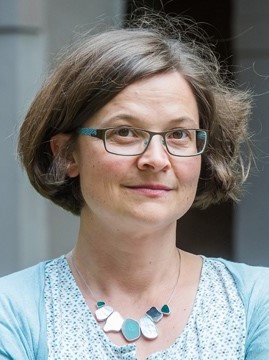Selected Publications
- How to choose sets of ancestry informative markers: A supervised feature selection approach(with P. Pfaffelhuber, F. Grundner –Culemann, F. Baumdicker), in: Forensic Science International: Genetics 46 (2020), https://www.fsigenetics.com/article/S1872-4973(20)30030-2/pdf.
- Responsible Research? Dilemmata der Integration gesellschaftlicher und kultureller Perspektiven in naturwissenschaftliche Forschungsprogramme (Einleitung) (with C. Borck, S. Maasen, R. Müller, M. Penkler), in: Special Issue, Berichte zur Wissenschaftsgeschichte 41(3) (2018), pp. 215-221.
- Health and Difference. Rendering Human Variation in Colonial Engagements (eds. V. Lipphardt / A. Widmer), Series ‘Biosocial Societies’, Berghahn Books, 2016.
- Visibility matters: Diagrammatic renderings of human evolution and diversity in physical, serological and molecular anthropology (eds. M. Sommer / V. Lipphardt), Special Issue of History of the Human Sciences 28(5), 2015.
- “Geographical Distribution Patterns of Various Genes”: Genetic Studies of Human Variation after 1945, in: Studies in the History and Philosophy of the Biological and Biomedical Sciences 47(A) (2014), pp. 50-61.
FRIAS Project
Science, Technology and Society: Benefits of researching and reflecting upon current developments
This 3-month-project aims to strengthen the newly established network “Science Reflection” (formerly: FELSA) in and beyond Freiburg. Freiburg university, a full-fledged university with a department for technology, offers unique opportunities to bring together scientists and academics who are interested in reflecting upon the limitations, the historical and societal contexts, and the ethical issues of their own research. Furthermore, here at Freiburg, dispersed over different university institutions, historians of science, as well as philosophers, sociologists, anthropologists and ethicists of science are engaged in research and teaching. However, even though together they would easily make an institute, so far little common research and teaching efforts have emerged. The network “Science Reflection” is a first starting point, yet due to Corona, these efforts have seen a certain slow down. In another vein, the synergetic potentials of colleagues working in the same fields in the Upper Rhine valley have not yet been explored.
This project sets itself the goal to bring together scholars from the EUCOR institutions to exchange on possible common research and teaching collaboration. A research funding proposal will emerge from this exchange.
